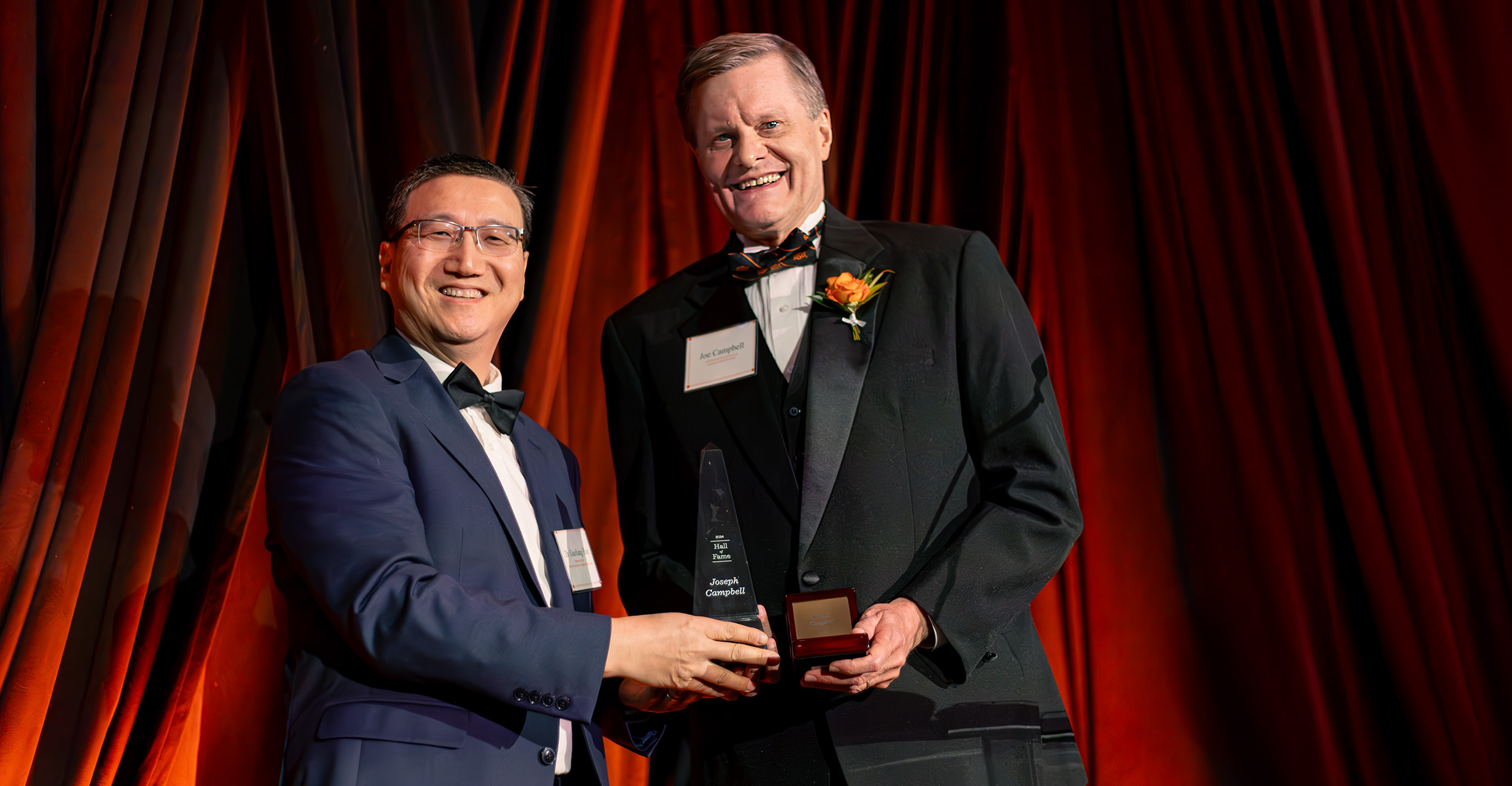
2024 CEAT Hall of Fame inductee and Lohmann Medal Recipient: Joseph Campbell
Tuesday, October 14, 2025
Media Contact: Kristi Wheeler | Marketing and Communications Manager | 405-744-5831 | kristi.wheeler@okstate.edu
Dr. Joseph Campbell graduated from Oklahoma State University with his Ph.D. in electrical engineering in 1992, earning that year’s OSU Best Dissertation award.
His professional career began at the National Security Agency in 1979, where he co-developed Federal Standards 1015 and 1016 voice coders, which enabled secure government communications over ordinary phone lines.
In the 1980s, Campbell attended an NSA Speech Research Symposium at OSU. There he met Dr. Rao Yarlagadda, a Regents Professor known for his work in time-series analysis and speech processing. Yarlagadda invited Campbell to pursue a Ph.D. at OSU, and shortly after, Campbell received an NSA Fellowship allowing him to study anywhere he wanted to go, solidifying Campbell’s decision to pursue his doctoral degree at OSU.
His OSU research further advanced voice biometrics, helping identify individuals based on speech patterns. Campbell and Yarlagadda co-authored a landmark paper on voice coding used in NSA’s 3rd generation Secure Terminal Unit, published in Digital Signal Processing. Yarlagadda also encouraged Campbell to publish parts of his dissertation as a journal article in the Proceedings of the IEEE — an article that has been cited over 2,700 times.
In 2012 at MIT Lincoln Laboratory, Campbell worked on DARPA-funded efforts to develop technologies that could identify patterns and illegal activity, including those related to human trafficking. The project was featured on 60 Minutes. He later led the AI Technology and Systems Group, focusing on human language, multimedia and cyber challenges critical to national security.
In 2022, he received MIT Lincoln Laboratory’s Technical Excellence Award. Now a Laboratory Fellow, Campbell leads an artificial intelligence study to advance the technology for national security applications far beyond the familiar generative AI services we know today.
"Later in your careers, try new things, reinvent yourself ahead of world changes, mentor staff and advise Ph.D. students. There’s almost nothing more rewarding than helping others succeed."
Photo: Annie Buford
Story by: Ashleigh Green | IMPACT Magazine
